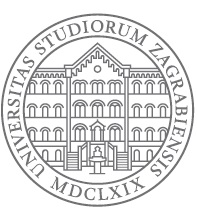Title Uloga i značaj civilnog društva za zdravstvo u Hrvatskoj Title (english) Role and importance of civil society for the Croatian health system Author Damir Martinović Mentor Aleksandar Džakula (mentor)Committee member Ognjen Brborović (predsjednik povjerenstva)Committee member Vera Musil (član povjerenstva)Committee member Aleksandar Džakula (član povjerenstva)Granter University of Zagreb Defense date and country 2018-07-13, Croatia Scientific / art field, BIOMEDICINE AND HEALTHCARE Scientific / art field, BIOMEDICINE AND HEALTHCARE Abstract Civilno društvo je prostor između obitelji, države i tržišta gdje se građani udružuju radi promicanja zajedničkih interesa. Kroz temu ovog rada više će se pozornosti posvetiti udrugama kao osnovnim i najbrojnijim predstavnicima organizacija civilnog društva. Udruge se kategoriziraju prema području djelovanja i djelatnostima koje provode u nekoliko razreda. Kategorije udruga koje mogu imati direktni ili posredni utjecaj na zdravstvo su kategorije ljudskih prava, gospodarstva i zaštite zdravlja. Ulogu i mogući značaj civilnog društva treba promatrati kroz perspektivu različitih dionika zdravstvenog sustava. Od posebne važnosti za zdravstveni sustav je sposobnost udruga da pomognu u osnaživanju pojedinca, pružanje različite usluge članovima i zajednici, promicanje i zagovaranje prava pacijenata, te pregovaranje sa zakonodavcima. Stručna društva zdravstvenih djelatnika pružaju poticajno okruženje za unaprjeđenje znanja u medicini. Udruge poslodavaca potiču svoje članove na razvoj procesa upravljanja zdravstvenim ustanovama, te zagovaraju njihove interese. Postoje brojne prednosti uključivanja udruga i ostalih organizacija civilnog društva u procese donošenja odluka na području zdravstvene zaštite. Civilno društvo može jačati legitimitet vlasti, pružati nove ideje zakonodavcima ili davati konstruktivnu kritiku političkih odluka. Tijekom godina se razvilo više institucija i nacionalnih dokumenta zaduženih za praćenje i potporu rasta neprofitnog sektora. Za procjenu prednosti suradnje i isplativosti ulaganja u civilno društvo potrebno je opisati jakosti i slabosti civilnog društva u Hrvatskoj. Uz sve prednosti i značaj, civilno društvo ne može biti zamjena za efektivnu politiku javnog zdravstva. Postojanje civilnog društva ne mora automatski značiti kako je ono ima svoju ulogu i utjecaj na zdravstvo. Tu je pretpostavku moguće ostvariti jedino ako postoje jasni mehanizmi suradnje javnog sektora, onih koji kroje političke odluke, te snažnog civilnog društva.
Abstract (english) Civil society is a space between family, state and market, where citizens associate to promote common interests. Through the subject of this thesis, more attention will be given to associations as basic and most numerous representatives of civil society organisations. Associations are categorised by area of action and activities they carry out in several classes. Association categories that may have a direct or indirect impact on health are human rights, economy and health protection. Role and potential significance of civil society should be viewed from various healthcare stakeholders’ perspective. Of special importance for healthcare system is the ability of associations to help with empowerment of an individual, provide various services to members and the community, promote and advocate patients’ rights and negotiate with legislators. Health care professionals expert societies provide a positive environment for improving knowledge in medicine. Employers’ associations encourage their members to develop management processes in healthcare institutions and advocate their interests. There are many benefits of involving NGOs and other civil society organisations in decision-making processes in the field of health care. Civil society can strengthen the legitimacy of the authorities, give new ideas to legislators or provide constructive critique of political decisions. Multiple institutions and national documents in charge for tracking and supporting growth of non-profit sector developed over the years. It is necessary to describe the strengths and weaknesses of civil society in Croatia in assessing the benefits of cooperation and cost-effectiveness of investments in civil society. With all the advantages and significance, civil society can not be a substitute for an effective public health policy. The mere existence of civil society does not mean that it has a role and impact on health by itself. This assumption can only be achieved if there are clear mechanisms of cooperation between the public sector, those who make political decisions and strong civil society.
Keywords
ljudska prava
neprofitne organizacije
socijalna pravda
građanska prava
Keywords (english)
human rights
non-profit organisations
social justice
civil rights
Language croatian URN:NBN urn:nbn:hr:105:572553 Study programme Title: Medicine Type of resource Text File origin Born digital Access conditions Open access Terms of use Repository Dr Med - University of Zagreb School of Medicine Digital Repository Created on 2019-10-16 14:28:28


